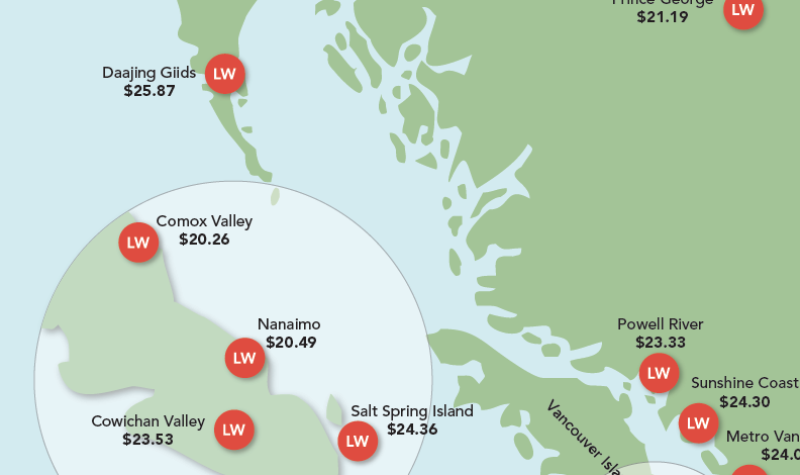This is part of a series called Living Wages on Cortes, hearing from local employers and advocates about raising the minimum pay rate to a living wage. Listen to the first story about Hollyhock here.
As inflation increases, so does the cost of living in both rural and urban areas. This year, the living wage for the Comox Valley raised from about $18/hour to $20.26/hour.
Living Wage Families BC (LWFBC) does not have an estimate for living wages on Cortes Island, but recommends considering the Comox Valley the closest estimate. LWFBC is a non-profit that works with Canadian Center Policy Alternatives and local community groups to calculate living wages in specific areas across BC.
Representative for the nonprofit, Anastasia French, explained why the cost of living can be higher in more rural, remote areas:
“But in rural areas where there's no transit options. We changed our methodology last year to include the cost of two cars. And then some communities which are particularly remote have some additional kind of needs," she said.
"So if you look at the highest living wage in the province is up in Haida Gwaii ($25.87/hr), and that's because it also includes like the cost of having to get a ferry to the mainland to stock up on essentials,” she added.
There can be many benefits for employers, workers, and their families to reach living wages.
“And employers have found that by paying a living wage, it reaps massive benefits. Both for workers…they don't have to work multiple jobs just to make ends meet. They can spend that additional time with their family and in the community …Businesses that pay a living wage have reported lower staff turnover. It's easier to recruit; it's easier to retain staff. It also increases productivity, and it generally increases morale of the workforce. “
The only employer on Cortes Island that has reached out to Living Wage Families BC is Hollyhock Learning Centre. French also confirmed that The Cortes Island Foundation has been in touch with the non-profit as well, and encouraged other local foundations to work with LWFBC to help develop an estimate for each specific region.
To hear more about how living wages support the community, listen to the CKTZ News Update below:


